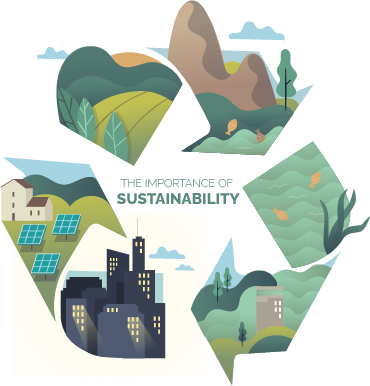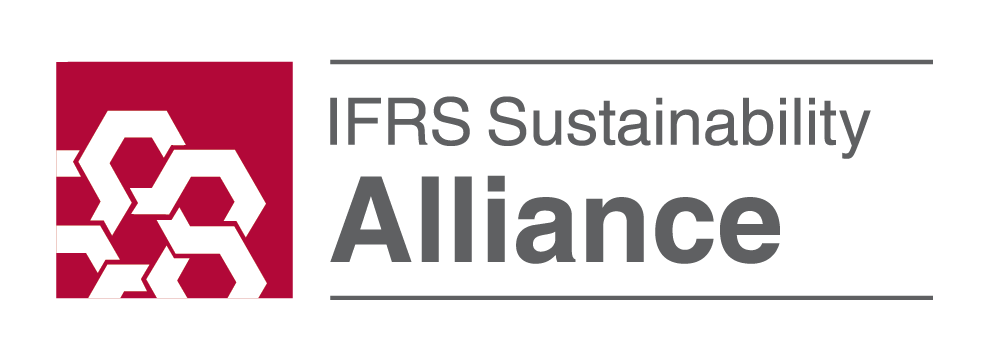The National Centre for Sustainability Reporting (NCSR), Indonesia in collaboration with the Institute of Certified Sustainability Practitioners (ICSP) organized the 16th Sustainability Reporting Awards (SRA)-2019 on November 23, 2019 (Saturday) in Bali, Indonesia.
Prime Bank from Bangladesh has been awarded PLATINUM ranking in this year on their Sustainability Report. The bank has got this award for preparing the Sustainability Report for the year 2018.

Touhidul Alam Khan, FCMA, DMD of Prime Bank (7th from left) poses with the Minister of Research and Technology, The Republic of Indonesia (6th from left) after receiving the trophy along with other awardees from different countries in Asia
This year’s event was attended by 50 companies and came from Malaysia, Singapore, the Philippines, Indonesia, Bangladesh and other Asian countries. The award event, which has been held for the past 15 years, aims to improve the quality of corporate sustainability reports in Asia. The assessments for awards are carried out by Judges and Assessors who are Certified Sustainability Practitioners from Institute of Certified Sustainability Practitioners (ICSP) and academicians.
On that occasion, the award was handed over by the Minister of Research and Technology of the Republic of Indonesia, Professor Bambang Permadi Soemantri Brodjonegoro who conveyed the importance of the role of corporations in achieving the National SGS’s.
“Innovation does not have to be an extraordinary finding that can win a Nobel award, it doesn’t have to be like that. It can also be findings or innovations that can help people in general,” Bambang said at the Asia Sustainability Reporting Rating (ASRRAT) in Westin Nusa Dua Resort, Bali on Saturday. He did not rule out the importance of extraordinary discoveries or innovations carried out by scientists or inventors, because the progress of science also depends on them but innovations or inventions can also be in the form of appropriate versions of technology needed by many people.
“For Indonesia, especially to promote SDGs and circular economics we need a combination of scientific advances but at the same time we need to be realistic to be used in everyday life,” Bambang said.
Bambang referred to the Sustainable Development Goals (SDGs), 17 of the goals proclaimed by inter-governmental countries including Indonesia at the UN resolution issued on October 21, 2015. All of these goals are expected to be achieved by 2030.
Meanwhile, the circular economy is a new economic model that emphasizes the concept that the resulting product can be reused for other products. The concept of a circular economy, according to Bambang, is one method that can be used to ensure environmental sustainability. In contrast to conventional economies which stop at waste as the end result of product use, in accordance with SDGs which focus a lot on saving the environment, the circular economy mode can be encouraged by producing environmentally friendly innovations. “In the new economic mode, innovation must focus on making something out of waste and I’m happy when I look at several laboratories in Indonesia, they work hard to make waste into something,” Bambang said.
Michele Lemmens, Regional Head ASEAN Hub of Global Reporting Initiative (GRI), the Netherlands has presented keynote paper in the ceremony.
“It is highly remarkable achievement in Asia that most of the banks & financial institutions are preparing sustainability report as per GRI method. That means, the owners of the organizations are being realized the importance of this report on which many non-financial information include here for future decision which are the most important for the stakeholders.”
Professor Dr. Anak Agung, Chancellor of Udayana University and Dr. Ir. Subandi, Deputy Minister of National Development Planning of Indonesia also presented papers on sustainability on the occasion.
Sustainability Reporting is communication on the economic, environmental and social policies, impacts and performance of an organization and its products in the context of sustainable development.
SDGs are a world agenda that needs support from various parties for their achievements. Therefore, SPC is organized to disseminate and build understanding of the concepts of SDGs embedded sustainability. The sustainability practitioners form around the world along with CEOs/senior executives from different companies, banks, government officials, lecturers and professionals attended in the conference.
There were two Plenary Sessions with the topics on “Climate Change Challenge” and “Corporate talk: Contribution to SDGs.” The panellists from Philippines, Indonesia and Bangladesh have presented their papers before the audience.
Md. Touhidul Alam Khan, FCMA, CSRA presented his paper on SDGs on Bangladesh’s perspective as a panellist in corporate talk of SDGs. Khan is a Certified Sustainability Practitioner (CSP) and first Certified Sustainability Reporting Assurer (CSRA) in Bangladesh who has been specially invited by NCSR & ICSP jointly to participate in this Plenary Session in the international conference as a speaker. Touhidul Alam Khan is Deputy Managing Director of Prime Bank and fellow of Institute of Cost & Management Accountants of Bangladesh (ICMAB) who received the “PALTINUM” award in favour of Prime Bank in the august ceremony from the Minister of Research and Technology of Indonesia.
Regarding the progress and implementation status of SDGs in Bangladesh, Touhidul Alam Khan explained in the conference in reply of questions from the audience in QA session, “Bangladesh together with other world leaders adopted the 2030 Agenda for Sustainable Development at the United Nations General Assembly in New York on 25 September 2015. This is a global commitment towards a more sustainable, resilient and inclusive development, with 17 Sustainable Development Goals (SDGs) and 169 targets.”
As a banker, he has also explained the role of Bangladesh Bank as central bank in achieving SDGs in Bangladesh. As central Bank; Bangladesh Bank is playing a vital role to design policy guidelines and programs for stakeholders of financial sector of Bangladesh towards implementing the above sustainable development goals.
Kristin Koleen D. Palaganas, SM Investments from the Philippines and Louise G. Pessireron from Kaltim Prima Coal of Indonesia were also presented papers on SDGs in their respective fields.
“Indonesia’s development plans are always designed through a holistic approach, with the framework of Thematic, Holistic, Integrated and Spatial (THIS), along with the fact that Indonesia is a big country consisting of thousands of islands with hundreds of cultural tribe”- said by Pressireron from Indonesia in the presentation. She also opined, “All of these goals need to be translated into such understanding of interlinkages among goals and targets into concrete results on the ground.”
Touhidul Alam Khan as representative of Bangladesh has given some recommendation in his presentation, “localization/customization of SDGs and private sector engagement can play a vital role to achieve the SDGs not only in Bangladesh but all over the world. And, first of all, awareness needs to be created at all levels in turning 2030 Agenda from a global vision into a local reality. And local communities and stakeholders, who must know individual and collective needs and capacities best, are critical partners in implementing and realising the goals. Targets and indicators of SDGs for contextualising the 2030 Agenda need to be appropriately synchronised with local development plans and strategies with utmost importance”.
Jongki Djujino Widjaja of Ernst & Young of Indonesia, Collin Legarde Hubo from UA&P Centre for Social Responsibility of the Philippines were presented the papers on climate change.
NCSR, a registered member of Global Reporting Initiative (GRI), the Netherlands since 2006 and lunched workshops & seminars on sustainability reporting in Asia.
“Sustainability is an integral part of value creation. In recent days, sustainability reporting has become an issue of concern for people from different segments including government, business bodies, research entities, development activists and non-government organizations (NGOs) and it has been acknowledged by them as a key component of development mechanism”, Touhidul Alam Khan told the Bangladesh Post who is also the Chairman of Sustainable Finance Committee (SFC) of Prime Bank.
Dr. Ali Darwin, Executive Director of NCSR told, “It is a very prestigious international award in Asia for those institutions, who prepare Sustainability Reports as per latest GRI Standards. Sustainability Reporting is the key component through which organizations become enable to formulate their goals, assess the development towards goals and thus ensure sustainability for the organization,” opined by Dr. Ali, who has vast contribution to implement sustainability reporting in Asia more than a decade and got life time achievement award on sustainability in this occasion. Michele Lemmens, Regional Head ASEAN Hub of GRI handed over the award to Ali for his outstanding contribution for his initiative and implementation of sustainability reporting in Asia. Dr. Ali started his journey of sustainability in 2002 and who is also the Council Member of GRI and established the NCSR in 2005 in Indonesia and presently there are 2500 nos. graduates on sustainability reporting in Asia including Bangladesh from NCSR.
The theme of Sustainability Report of Prime Bank for the year 2018 was: ‘Exploring the New Horizon- Towards Sustainable Development. “We are proud to say that Prime Bank has published the 6th Sustainability Report for the year 2018 by using latest GRI Standards with assurance first time in Bangladesh. This report conveys disclosures of Prime Bank’s most critical impacts –positive or negative – on the environment, society and the economy,” viewed by Touhid who is the Head of Sustainability Reporting Committee (SRC) of Prime Bank as well.
The latest non-financial reporting tool known as sustainability reporting tends to follow and evaluate the governance practices, environmental impact along with the commitments of a business entity towards the community. It builds an enabling environment towards achieving Sustainable Development Goals (SDGs) as well.
Prof. Eco Ganis, Chairman of Board of Director of ICSP, Indonesia said, “Sustainability report is a most important communication channel that an organization should consider a very valuable tool by which a company can use to share its environmental performance and environmental activities, the opportunities it offers for employees and the social benefit it creates, in addition to sharing its financial performance.”
GRI’s Sustainable Development Goals (SDGs) is to foster inclusive development and sustainable, green, economic growth by empowering decision makers through sustainability standards and multi-stakeholder network through sustainability reporting.
“The sustainability award is a milestone step in Asia taken by NCSR & ICSP motivating the organizations to more compliance in terms of environment, social & economic perspective which ultimately contributes to achieve the SDGs mapping with all indicators under GRI to 169 targets’, told by Dr. V. Saptarini, who was the judges of ASSRAT and Lecturer of University of Bandar Lampung, Indonesia.
“In the 21st century, sustainability reporting is emerging as a common practice for businesses. Sustainability disclosure has become the best practice followed by companies across the world today although it once used to be practice of a handful of community- oriented or unusually green companies. With a focus on sustainability, organizations can manage their environmental and social impacts while improving natural resource stewardship and operational efficiency and letting it remain a critical component of employee, stakeholders and the relation with them for going the extra miles”, Prime Bank focused in their Sustainability Report.
Prime Bank has also obtained “Materiality Disclosure Icon” from Global Reporting Initiative (GRI), the Netherlands. The Sustainability Reports of Prime Bank has already been uploaded in GRI website.
Mentionable that Prime Bank publishes Sustainability Report under GRI guidelines since 2013 as per green banking policy of Bangladesh Bank and the bank was also awarded GOLD ranking in 2018.
Sources : https://theriverineonline.com/2019/12/03/asia-srr-2019-prime-bank-received-platinum-award-from-bangladesh/





